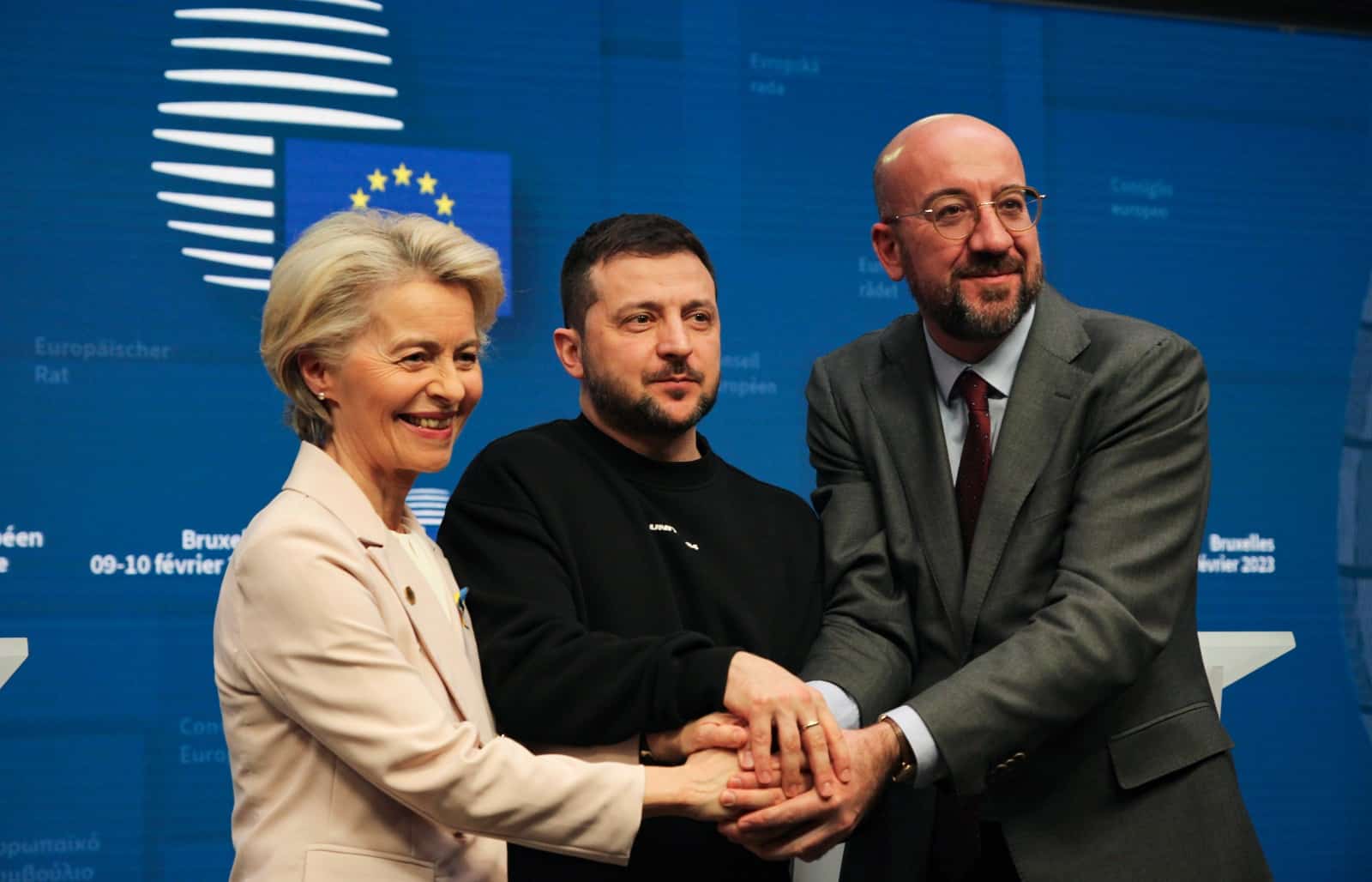Brussels – Green light for the first of the regular payments under the Ukraine Facility, the $50 billion fund the EU has dedicated to Kyiv to ensure its financial stability for the next four years. Ironically, it fell to the Hungarian presidency of the EU Council—whose government had flatly opposed the allocation of the new budget for Ukraine—to authorize the first 4.2 billion instalment.
“This decision supports Ukraine’s macro-financial stability and the functioning of its public administration,” the rotating presidency of the EU institution explained in a post on X. In the decision adopted today (August 6), the ambassadors of the 27 member countries concluded that Ukraine has met the conditions and reforms set out in the Plan for Ukraine, presented in Brussels last March 20, necessary to receive the funds.
Reforms covering the management of public finances and state-owned enterprises, the development of a more prosperous business environment—particularly in the energy sector—and the very delicate task of de-mining Ukrainian territory from the thousands of ordnance left behind by the Russians. Outlining the Plan outlining Ukraine’s intentions for the country’s recovery, reconstruction, and modernization and the reforms to be undertaken as part of the EU accession process over the next four years, Ukrainian Prime Minister Denys Shmyhal had indicated the coverage of “about 70 areas through structural reforms in the public sector and economy to develop the business climate in energy, logistics, agriculture, critical raw materials, and information technologies.”

Of the €50 billion in stable grant and loan financing to support Ukraine’s recovery, reconstruction, and modernization over the period 2024-2027, up to €32 billion will be earmarked to support reforms and investments under the Ukraine Plan, with payments contingent on the achievement of identified milestones. Today’s is the first regular payment, while since it entered into force, the EU has already disbursed through the Ukraine Facility €6 billion as exceptional bridge financing and €1.89 billion as pre-financing, representing an advance of 7 per cent of loan support. Brussels and Kyiv have estimated that if Ukraine succeeds in fully implementing all proposed reforms and investments, the country’s GDP could increase by 6.2 per cent and 14.2 per cent by 2040, with a likely parallel reduction in debt of about 10 per cent of GDP by 2033.
English version by the Translation Service of Withub







